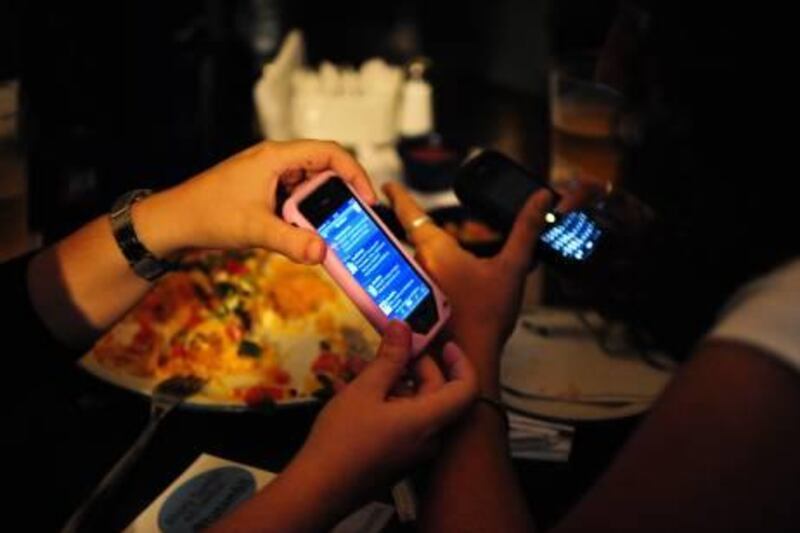ABU DHABI // If you Googled the words "Twitter blackout" yesterday, the search engine returned more than 85 million hits. Evidence, surely, of global outrage and a backlash against the microblogging website by its army of users, or "tweeps".
Well, no. Or not, at least, in the UAE, where reaction to Twitter's new policy of country-specific censorship of content seemed to be bemusement that there hadn't been more of a reaction.
One mystified user tweeted: "Why is #TwitterCensored not trending in the UAE when we're all talking about it? Has the #censorship already begun?"
Twitter announced its change of policy last Thursday. "Starting today, we give ourselves the ability to reactively withhold content from users in a specific country - while keeping it available in the rest of the world."
The company argues that, far from threatening freedom of speech, the new policy enhances it, since content that would once have been removed worldwide will now be taken down only in specific countries.
Nevertheless, protesters called for a global Twitter blackout on Saturday, using the hashtag #twitterblackout to announce that they would not be using Twitter the whole day.
Either they were in a minority, however, or the urge to tweet proved irresistible - even if only to give their opinions on Twitter's new censorship policy.
One of the region's leading tweeps, Sultan Al Qassemi, the Emirati columnist and commentator, described the new policy as "no big deal."
"People will just move on to new platforms," he said yesterday. "There are plenty of other platforms out there."
Mr Al Qassemi, who tweets as SultanAlQassemi, has more than 95,000 followers.
Some users took the opportunity to poke fun at the potential consequences of Twitter censorship. Sultan Saeed Darmaki tweeted: "@sultandarmaki **** ************ ** *** ** LOL #ProudToBeEmirati"
He added: "You need to wait three days for your tweets to be approved." and "Now people in UAE won't know if Kim Kardashian is coming to Dubai again."
When asked about his opinion of the new policy, Mr Al Darmaki said: "I don't have an overall opinion about it because it doesn't affect me in any way. It's just an opportunity for satire."
Nevertheless, some users called for solidarity with other Arab users who relied on Twitter in their countries to mobilise protests that helped to topple dictators and bring about change during the Arab Spring.
Hind Aleryani of Yemen, who joined the Twitter blackout for the sake of "freedom of speech", tweeted: "It's a shame to talk about censorship especially after the Arab spring."
Dr Abdulkhaleq Abdulla, a prominent Emirati professor of political science at United Arab Emirates University and an avid Twitter user with more than 8,000 followers, said he didn't think the new policy would have much effect.
"I don't feel it will change freedom of expression, it will target select topics and not affect the overall Twitter experience."
rghazal@thenational.ae






